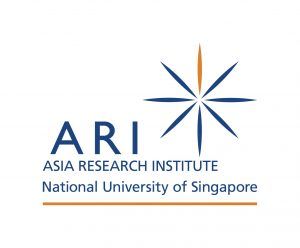Contact

Center for Asian Studies CASE Building, Suite E330
366 UCB
Boulder, CO 80309-0366
China_Made@colorado.edu
Partners

![]()



First China Made Workshop: Conceiving Infrastructure in a Chinese Register
Alessandro Rippa, November 2018
Download the English PDF version here (475KB);点击下载电子中文版(528KB)
This article first appeared on #AsiaNow, the blog of the Association for Asian Studies.

In 2015, a mind-blowing statistic made the rounds of all major news outlets: China used more cement between 2011 and 2013 than the United States had in the entire 20th century. While astounding, the news was hardly surprising. During the previoustwo decades China watchers and the general public alike had become accustomed to the country’s flamboyant infrastructure projects. The Three Gorges Dam, Beijing’s Olympic stadium, the world’s longest high-speed railway network, the longest sea crossing … the list goes on. As Jonathan Bach puts it: “In our present era, China stands out as the paradigmatic infrastructural state: a state produced by and through infrastructure as a modern project.”
At the same time, in academia, recent years have seen a proliferation of social science studies of infrastructure. “Infrastructure” became a recurrent theme of debates at disciplinary conferences and workshops, leading to some scholars wondering whether we should be talking of an “infrastructural turn” in the social sciences today.
It was against this backdrop that on October 17-19, the Center for Asian Studies of the University of Colorado Boulder convened a workshop titled Conceiving Infrastructures in a Chinese Register. The first of three workshops planned under a Henry Luce Foundation-funded initiative titled “China Made: Asian Infrastructures and the ‘China Model’ of Development,” this international symposium sought to develop a theoretical and methodological agenda for bringing infrastructure studies into conversation with China’s domestic and export infrastructures. To this end, the workshop brought together 22 scholars doing research in China, as well as scholars who have been engaging with infrastructure in other Asian contexts. The goal was to sharpen questions and methods of analysis for further investigations of the conceptual-empirical registers of China’s infrastructural development.
The themes highlighted by the various participants – including the socialist history of the Chinese “zone,” the need to understand infrastructureas both sites and network, the critical aspect of temporality and material decay, and the often-missing question of gender in infrastructure studies – revealed the complexity of infrastructure as social, material, and discursive. Speakers also explored how infrastructure seems to have an”intrusive” agency: the infrastructure that surrounds us, from roadsand railways to internet networks and mobile phones, are both external and embodied in unique ways. Internet technology and surveillance infrastructure, in particular, were highlighted as major components of contemporary life in China that are often missing from broader debates on the subject.
One of the key insights of the workshop was the need to approach infrastructure as both object and method. As particular objects of inquiry, infrastructures represent an ideal point of entry from which to observe and analyze broader socio-political processes. Methodologically, they force us to think across scale without losing sight of the material components of which they are made.
From this perspective, as professor Tim Oakes noted, China’s political system can be seen as an infrastructure machine: an apparatus that lends itselfto the development and construction of infrastructure. Certainly, the massive projects outlined above, the consideration that almost half of China’s total investment goes towards infrastructure, and the current push to export a Chinese model of development through the Belt and Road Initiative, make this argument worthy of further exploration.
A full exploration of these themes surely demands a trans-disciplinary mindset and methodological approach. Hence, the first China Made workshop brought together historians of technology, landscape architects, human geographers, and social anthropologists. The workshop featured an opening session with contributions from Andrew Barry (University College London) on the theme of infrastructure studies, and Tong Lam (University of Toronto) on China’s development trajectory. Four panel discussions ensued around four major themes: temporalities; spatialities; states; and the everyday. Each panel highlighted particular tensions: between the ruins of past infrastructure and the promises embedded in new ones, between state-centered development and neoliberal globalization, between the urban and the rural, and between Chinese and non-Chinese infrastructure.

The workshop also featured a casual hike through the Chautauqua Park andtwo dinners in Boulder’s scenic surroundings. During these latter portions ofthe workshop, participants informally engaged in discussion about their respective interests and research related to the workshop.
The workshop was organized by Tim Oakes (University of Colorado Boulder), Dorothy Tang (Massachusetts Institute of Technology and University of Hong Kong), Max Hirsh (University of Hong Kong), and Emily Yeh (University of Colorado Boulder), with assistance from Yaffa Truelove and Alessandro Rippa (both University of Colorado Boulder).
The website of the China Made project will feature short versions of the papers discussed during the workshop, as well as video interviews with some of the participants. The organizers will also publish some of the key theoretical and methodological findings in a forthcoming paper in a disciplinary journal. As part of the China Made project, two more workshops will be held in 2019 and 2020, one focusing on domestic infrastructure and one focusing on Chinese infrastructure development in Southeast Asia. For more information on upcoming events and publications please visit the China Made website.
Participants: Jonathan Bach (The New School), Andrew Barry (University College London), Mike Dwyer (University of Colorado Boulder), Andrew Grant (University of Colorado Boulder), Gökçe Günel (University of Arizona), Tong Lam (University of Toronto), Suzanne Moon (University of Oklahoma), Galen Murton (James Madison University), Pal Nyiri (Vrije University), Katharine Rankin (University of Toronto), Alessandro Rippa (University of Colorado Boulder), Christina Schwenkel (University of California Riverside), Rachel Silvey (University of Toronto), Edward Simpson (School of Oriental and African Studies, University of London), Hallam Stevens (Nanyang Technological University), Yaffa Truelove (University of Colorado Boulder), Amy Zhang (New York University), Yongming Zhou (University of Wisconsin Madison and Southern University of Science and Technology Shenzhen).
首次中国制造研讨会:构想中国框架内的基础设施
Alessandro Rippa, 2018年11月28日
该文章首次发表于亚洲研究协会的博客,#AsiaNow。
2015年间,一个颠覆人想象的数字被众多主流新闻平台争先报道:从2011到2013年,中国的水泥使用量超过了美国整个20世纪的水泥使用总量。尽管这个数字很惊人,但这条新闻几乎不让人震惊。在过去20年间,中国观察家以及众多对中国感兴趣的群体已经对中国耀眼的基础设施感到习惯:三峡大坝,北京奥林匹克体育场,世界上最长的铁路系统,世界上最长的跨海大桥。正如 Jonathan Bach所言: 当前中国是一个实用性的基础设施国:一个通过且基于基础设施而实现现代计划的国家。
同时在学术界,近几年出现了大量基于社会科学的基础设施研究。“基础设施”在各个学科的会议及论坛中成为了一个反复出现的具有争议的主题,导致一些学者思考现在社会科学学科是否应该讨论“基础设施转向。” 在这个大背景下,科罗拉多大学博尔德分校的亚洲研究中心于2018年十月17日到19日召集举办了为期三天名为构想中国框架内的基础设施的学术研讨会。这是由亨利卢斯基金会资助的中国制造:亚洲基础设施与“中国模式”发展 项目中计划的三个研讨会中的第一个。这个国际化学术会议旨在创造一个理论及方法论为一体的的议题:将基础设施研究带入关于中国境内及其出口基础设施的研究中。这个学术会议总共聚集了22位研究中国的学者以及研究亚洲其他国家基础设施的学者。 该会议的目的是打磨并提高中国基础设施发展研究的概念性及实践性问题和方法。
各个学者在该研讨会中强调的主题——包括中国“区域”的社会主义历史,将基础设施同时看作地点与关系网的重要性,基础设施的暂时性与材料衰败的重要性,以及常常被忽略的基础设施中性别的问题 —— 展现出基础设施作为社会性的,材料性的以及推论性的复杂程度。
会议参与者同时探讨了基础设施似乎带有的入侵性媒介:将我们包围的基础设施既外在表面化又在特殊的方式上内向具体化,比如从铁路到网络到电话。网络科技和监控设施特别被强调为当代中国生活的主要成分。然而这个话题常常被更宽泛常见的争议主题给忽视。
将基础设施同时看作实质性研究物体与研究方法是这次学术研讨会中一个关键部分。作为特殊的研究物体,基础设施是一个理想的起始点因为它使研究者可以同时观察并分析广泛的社会政治过程。从方法论的角度来看,我们在不失去基础设施材料成分研究的同时能从不同的规模、尺度或比例进行学习调查。
恰如Tim Oakes教授在研讨会中提及,从这个角度来讲,中国的政治制度本身可被看作一个基础设施:一个可以将自己提供给基础设施发展及建设的设备。毫无疑问,之前被提及的大规模项目,基乎一半的中国总投资花费在基础设施上的事实,以及当下通过一带一路输出中国发展模式的号召都让这个话题值得更进一步的探索与研究。
进一步全面探索研究这些主题需要跨学科的思维方式及方法。因此,第一个中国制造学术研讨会聚集了科技历史学家,景观建筑师,人类地理学家以及社会人类学家。Andrew Barry (伦敦大学学院) 与 Tong Lam (多伦多大学) 分别以基础设施研究与中国发展的历史轨迹的讲话开启了此次学术会议。开幕演讲后围绕四个主题进行了四个小组讨论会:暂时性,空间性,国家以及日常生活。每一个小组论坛会都强调基础设施特殊的过去遗迹与新的未来期许之间矛盾与紧张的关系;国家主导的发展计划与新自由主义全球化之间矛盾与紧张的关系;农村与城市发展之间矛盾与紧张的关系以及中国与非中国基础设施之间矛盾与紧张的关系。
该研讨会另外一个亮点是Chautauqua Park徒步以及两顿被美丽景色包围的晚餐。会议参与者在晚餐时间也非正式的分享讨论他们各自的兴趣以及研究领域。
中国制造学术研讨会是由Tim Oakes (科罗拉多大学博尔德分校), Dorothy Tang (麻省理工大学及香港大学), Max Hirsh (香港大学), 与 Emily Yeh (科罗拉多大学博尔德分校)组织,同时由Yaffa Truelove and Alessandro Rippa (同为科罗拉多大学博尔德分校)提供帮助。
中国制造的网站将提供简短的学术讨论文章以及部分会议参与者的采访视频。会议组织者同时会在学科学术期刊中发表一篇关于理论性及方法论方面的关键发现。作为中国制造项目的其中一部分,其余两个学术研讨会将于2019以及2020年举办。其中一个关注中国境内的基础设施,另一个着重中国在东南亚的基础设施。欲知更多未来活动以及学术发表,请关注中国制造网站。
参会者: Jonathan Bach (新学院), Andrew Barry (伦敦大学学院), Mike Dwyer (科罗拉多大学博尔德分校), Andrew Grant (科罗拉多大学博尔德分校), Gökçe Günel (亚利桑那大学), Tong Lam (多伦多大学), Suzanne Moon (俄克拉荷马大学), Galen Murton (詹姆斯马迪逊大学), Pal Nyiri (阿姆斯特丹自由大学), Katharine Rankin(多伦多大学), Alessandro Rippa (科罗拉多大学博尔德分校), Christina Schwenkel (加州大学河滨分校), Rachel Silvey (多伦多大学), Edward Simpson (伦敦大学亚非学院), Hallam Stevens (南洋理工), Yaffa Truelove (科罗拉多大学博尔德分校), Amy Zhang (纽约大学), Yongming Zhou (威斯康辛大学麦迪逊分校及深圳南方科技大学).